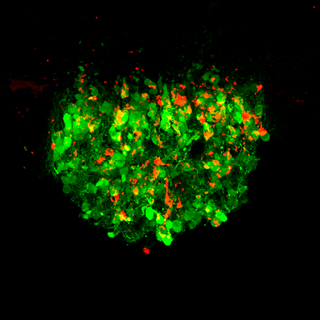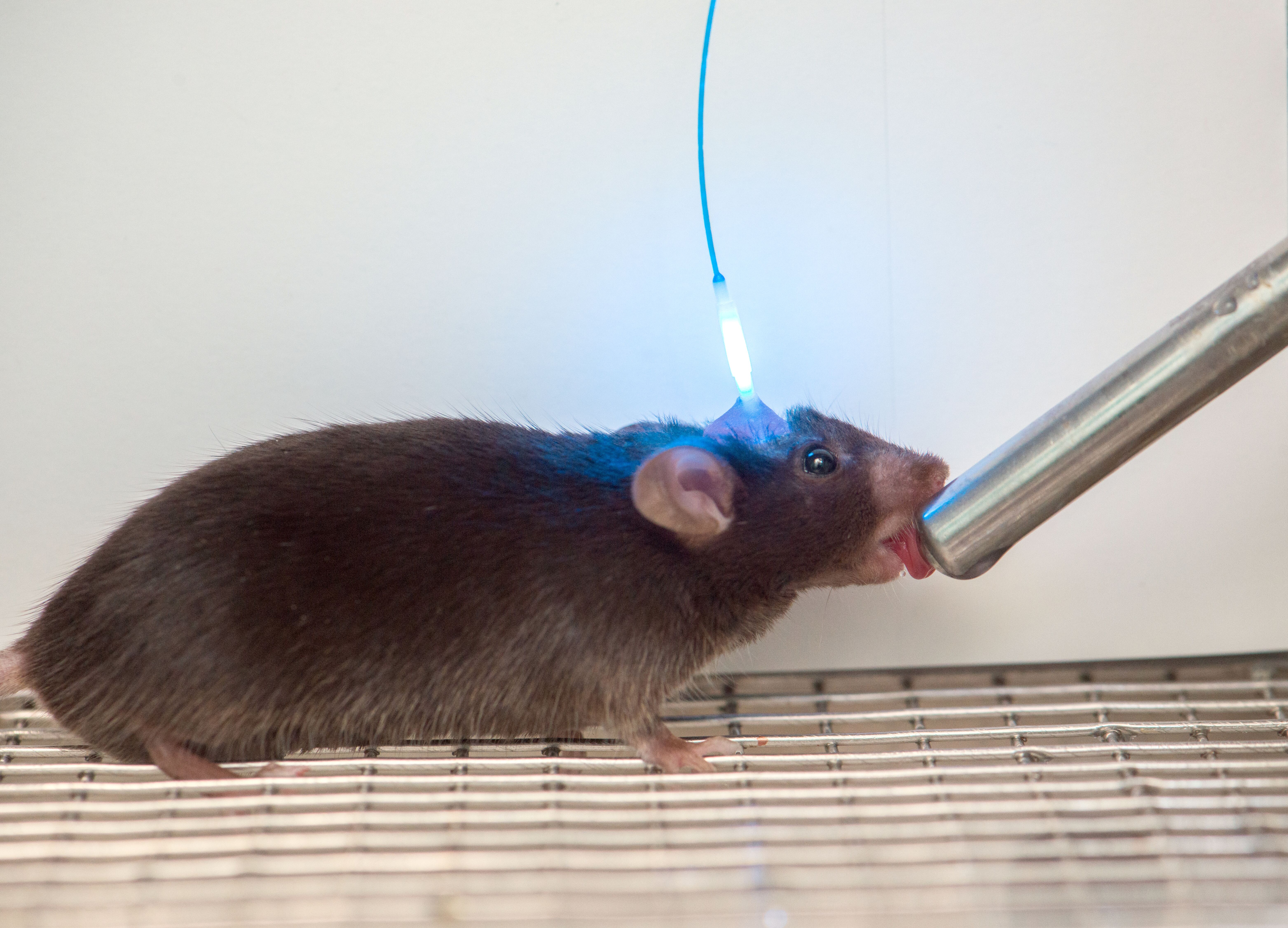How Long Does It Take Your Body To Repair Itself After You Stop Drinking Alcohol
How Does the Body Know When to Finish Drinking Water?

That first drop of ice-cold h2o after a run in the scalding sunday tin exist deliciously inviting. A glass of water later on downing four others, nevertheless, probably isn't.
Those varied responses occur thank you to the brain, which makes certain we don't drink too much or also little water — two scenarios that would throw the body into dangerous territory.
But how does the brain know when to encourage you lot to cease or kickoff drinking?
A new study conducted in mice suggests that a mysterious chemical element in the gut may play a office past predicting how much you need to potable to satisfy the body. It then promptly notifies the brain, which, in turn, decides how thirsty to make you, a grouping of researchers reported today (March 26) in the journal Nature.
Thirst cells
In 2022, a group of researchers at the University of California, San Francisco (UCSF) found that when mice potable liquids, it prompts the mouth and pharynx to send signals to the brain, which shuts down the brain cells that dictate thirst. These "thirst cells" are constitute in a region called the hypothalamus, which regulates thirst, blood force per unit area and other bodily processes, and likewise in a small neighboring spot chosen the subfornical organ. [ten Things We Learned About the Brain in 2022]
The mouth and throat brainstorm firing these signals within a few seconds of drinking something, although it typically takes from about 10 minutes to an hour for that h2o to actually enter the bloodstream and be circulated to thirsty cells throughout the trunk. And then the brain needs to strike a remainder — if it turns off the signals too fast, you won't get enough to beverage.
"Somehow, the brain has a fashion to match these 2 dissimilar timescales and then that y'all can very rapidly drink only the correct amount of h2o to satisfy your body's needs," said study author Zachary Knight, an associate professor of physiology at UCSF and a Howard Hughes Medical Institute investigator.
How the brain does so was the question the researchers' report sought to reply.
The elusive talker
In the new study, Knight and his team implanted optical fibers and lenses near the hypothalamus of mouse brains, which immune them to scout and measure when those thirst neurons turn on and off. [13 Tips for Staying Hydrated in the Summer Heat]
When they gave the mice salt h2o, the scientists institute that the thirst neurons stopped firing nigh immediately, as expected. Simply a infinitesimal or so later, those neurons switched back on.

The throat and mouth fire signals to the brain to begin quenching thirst no matter the type of liquid. Merely because salty liquids can dehydrate the trunk, the "on" signal likely came from somewhere else, later on the pharynx and mouth turned the thirst neurons "off."
Following a hunch that these neurons might be getting the other signals from the gut, the researchers directly infused water — both salty and fresh — into the mice's stomachs, avoiding the mouth and pharynx signals all together.
They found that fresh water also made the neurons stop firing, merely salt water didn't. What's more, when salt-water infused mice were given fresh water to potable, those thirst neurons showtime, as expected, switched off — only and then quickly switched dorsum on.
The results suggest that there are molecules in the gut that sense the common salt content in liquids and use information technology to predict how much a beverage will hydrate the body. This system, which simply seemed to work when the mice were truly dehydrated, sends this information forth to the encephalon within a single infinitesimal, and the thirst neurons twinkle on and off.
And sodium isn't the only chemical compound that would set off the gut molecules, Knight told Live Science. "Anything that would modify the osmolarity of the blood is detected by this system." (Osmolarity refers to how full-bodied a liquid is.)
The command of thirst
The findings, if confirmed in humans, could benefit a range of people.
For instance, Knight noted that our ability to regulate thirst decreases with age. "So [elderly people] fail to stay properly hydrated, and that can cause medical problems — peculiarly, for case, during times of intense heat," he said.
The contrary can also hold true: " A big proportion of marathon runners tend to over-hydrate during a race," said Charles Bourque, a neuroscientist at McGill University in Canada, who was not a function of the written report. "The reasons for this are not clear, but a weakening of this gut-to-brain betoken might play a office."
In any case, the written report "significantly advances what we know about the command of thirst," Dr. Bourque told Live Scientific discipline. And because the results are consistent with data obtained from brain scans in humans, at least some of the findings are probable applicable to humans, he added.
Though mice and humans patently differ in some brain structures, their hypothalami are very similar, Knight said.
The team also found that the thirst signals traveled along the main signal highway between the brain and the gut: the vagus nerve. When the researchers cut out this nerve in a later experiment, the thirst neurons didn't turn back on when the mice started drinking.
Though they don't know for sure, the team thinks that the signals are coming specifically from the small intestine, which is the spot that connects most strongly to the vagus nerve and is also in the "correct" timespot in the digestive process to activate those thirst nerves a minute or so after drinking water.
For their next project, the team hopes to figure out the origin of the signal.
- Top 10 Mysteries of the Listen
- ten Ways to Promote Kids' Healthy Eating Habits
- 3D Images: Exploring the Homo Brain
Originally published on Live Scientific discipline .
How Long Does It Take Your Body To Repair Itself After You Stop Drinking Alcohol,
Source: https://www.livescience.com/65086-how-brain-knows-stop-drinking-water.html
Posted by: freemanbandegave.blogspot.com



0 Response to "How Long Does It Take Your Body To Repair Itself After You Stop Drinking Alcohol"
Post a Comment